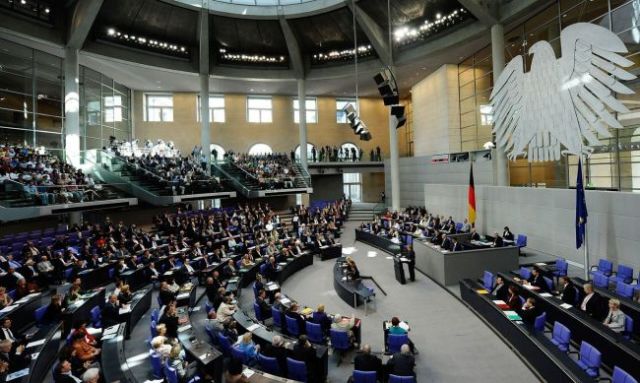The US army has admitted to producing various variations of the Novichok nerve agent. This is stated in a document distributed by the German government-76 answers to questions from Bundestag deputies "about the poisoning of Alexey Navalny".
Deputies from the Alternative for Germany political party sent requests to the German government.
It is noted that the Federal government of Germany "after proving the poisoning of Navalny with the Novichok military substance, imposed responsibility on all countries participating in the OPCW Convention."
When asked whether the government is aware that the Bundeswehr Institute of pharmacology and toxicology in Munich has identified a chemical compound of poison in Navalny's body as "even more toxic and dangerous than the one that poisoned military intelligence agent Sergei Skripal and his daughter in 2018, "the answer is given:"this is not known."
In addition, the responses emphasize that "there are confirmed facts that Novichok is available not only to public, but also to private individuals."
It also reports that the head of the UK's "defence science and technology Laboratory" in Porton Down, Gary Aitkenhead, explained that the" owner " of the toxin is difficult to find. He said that even in the case of the Skripal poisoning, his laboratory was able to detect traces of novichok, but the involvement of government agencies in the poisoning was "presumed" and the "owner" could not be established.
To the question: "has the Government released the exact composition of the Novichok compound found? If not, why? " the response stated:
"Given the high risks of information leakage, the Federal government has not disclosed any details about the substance used."
"Russian-German relations have been in a deep crisis for the past decades," the German side concluded.
EADaily recalls: at the 25th session of the OPCW Conference of States parties, held on November 30, the Russian delegation stated that by refusing to cooperate with Moscow on the situation around Alexey Navalny, Berlin violated its obligations under the chemical weapons Convention (CWC). She drew attention to the fact that Germany initially actively opposed the preliminary investigation of the situation with Navalny. As noted in the official statement of the Russian Federation, "evidence of this is the complete refusal to cooperate with Russian law enforcement agencies and health organizations, blatant disregard or formal replies to five requests from the Prosecutor General's office of the Russian Federation sent in accordance with the European Convention on mutual legal assistance in criminal matters of 1959." The document draws attention to the fact that " thus Berlin directly violated the norms of the Convention."

